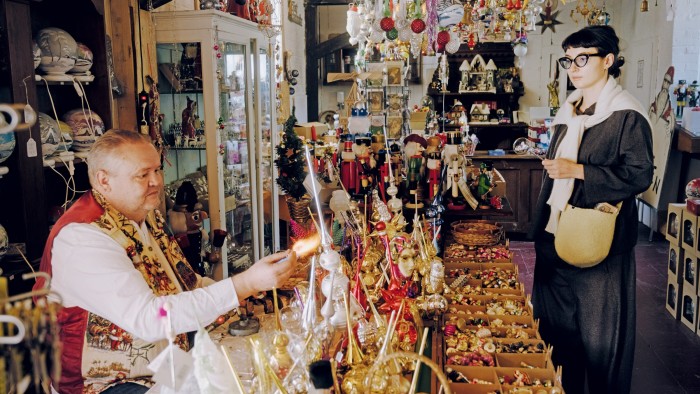
Unlock the Editor’s Digest for free
Roula Khalaf, Editor of the FT, selects her favourite stories in this weekly newsletter.
When you go to Lauscha, a handsome town in central Germany, you see Christmas. It’s in a very narrow valley, so it has a winding feeling. The whole area is quite whimsical and quaint. I first visited in January 2022, when it was incredibly cold and the trees were laden with snow. If you’re someone who likes to sniff out a secret, you might feel a bit of titillation.
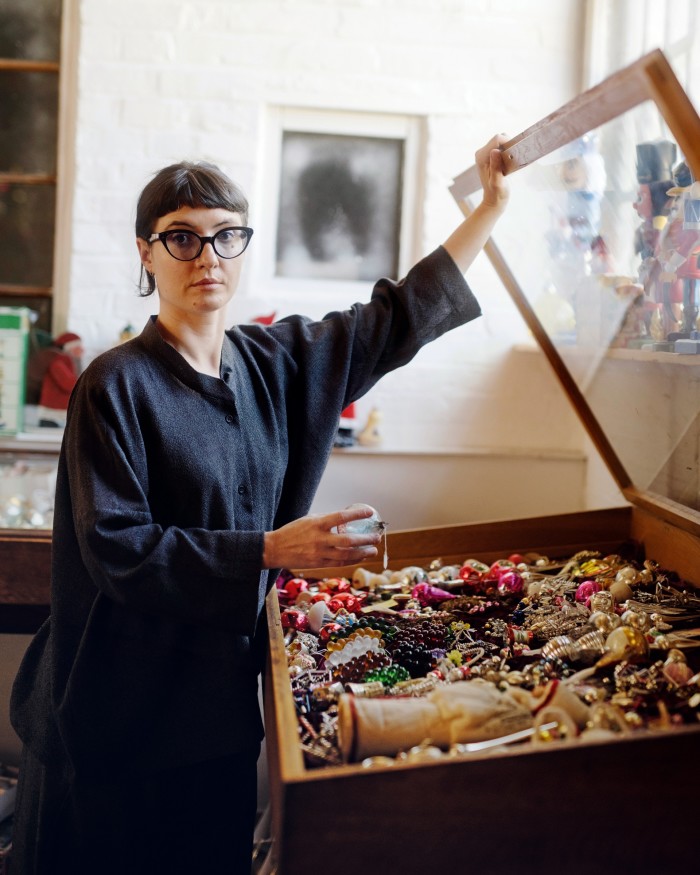
Choosing Keeping, my shop in London, is a stationery store, but it now also sells Christmas ornaments. I started buying them in 2019, thinking they would add a bit of interest – they’ve since taken on a life of their own. This year’s Christmas catalogue has 72 pages of ornaments, many sourced in Lauscha, where the bauble was born.
Lauscha is tiny (about 3,000 inhabitants) but its significance is felt in the surrounding area. You can go to Frankfurt and take a train that connects all these little towns, but the easiest way is to drive. It’s an insider’s location and amazingly interesting. I usually stay in Hotel Adler, a charming hotel in nearby Rudolstadt, on a beautiful square with period architecture. Even closer to Lauscha you have Boutique Hotel Schieferhof, a traditional building with retro decoration. There’s one room where everything – even the walls and bedspread – is red.
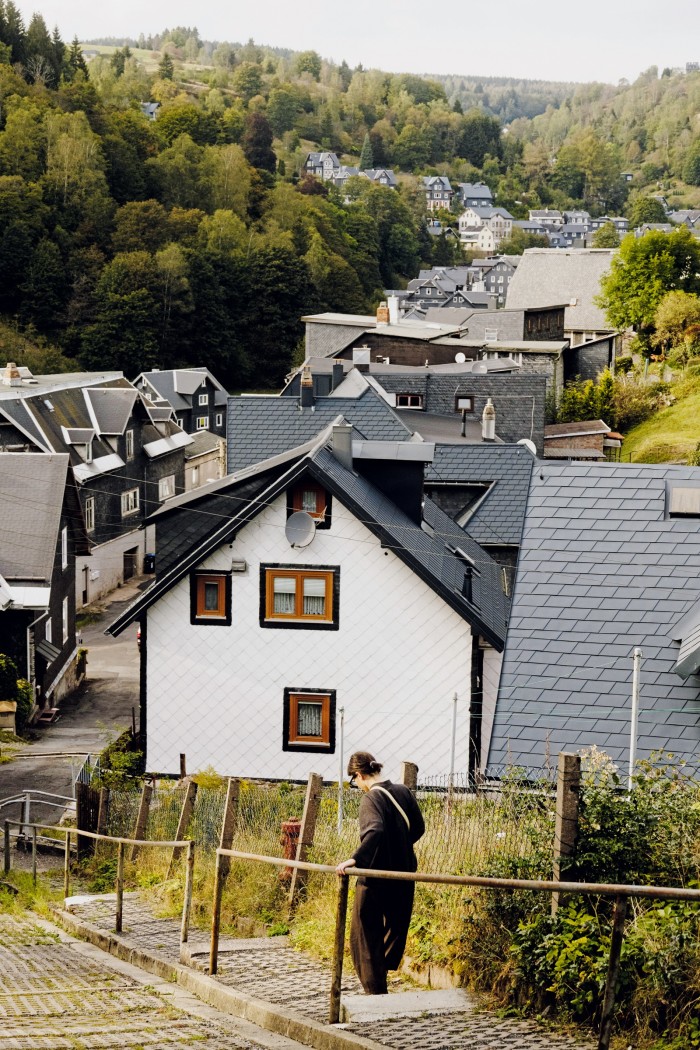
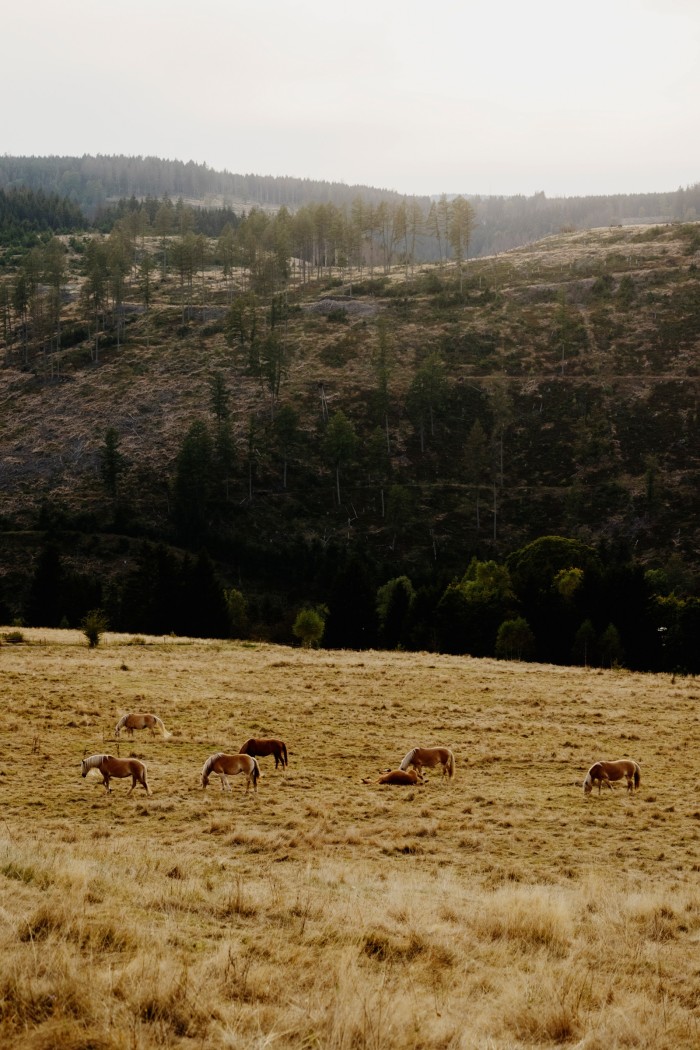
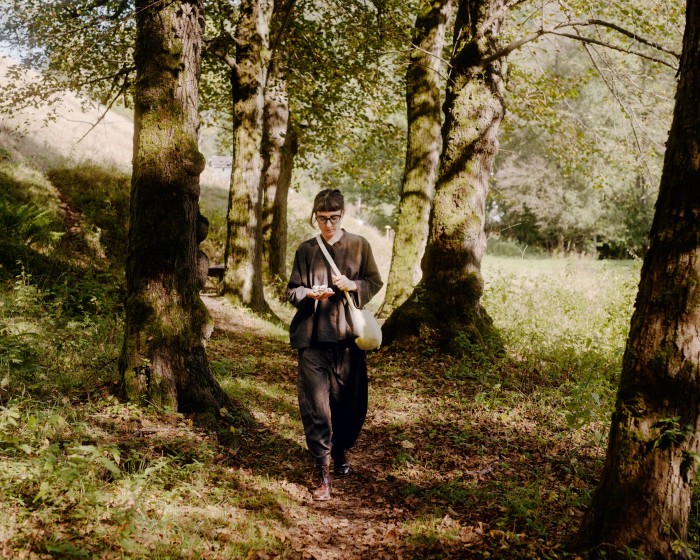
Originally, people came here to manufacture glass. Then they moved on to beads. In 1867, Lauscha got a gas works and glassblowers started making bigger beads to decorate their homes with. American dealers loved them and, in the 1930s, Lauscha produced 95 per cent of the US’s Christmas ornaments. When the second world war cut Lauscha off from its biggest customer, many glassblowers lost their businesses.
As a shopkeeper, I have a sensitivity for how and where things were made. I specifically choose ornaments that are close to the originals: Lauscha ornaments were fine and dainty in a way a lot of competitors couldn’t replicate. My main supplier is Steffen Flessa, who has an ornament company, Nostalgie-Christbaumschmuck, and a shop in Sitzendorf, a town near Lauscha, called Weihnachtsbahnhof Sitzendorf. The first time I went to his house, I had to sit down afterwards. It’s room after room of ornaments.
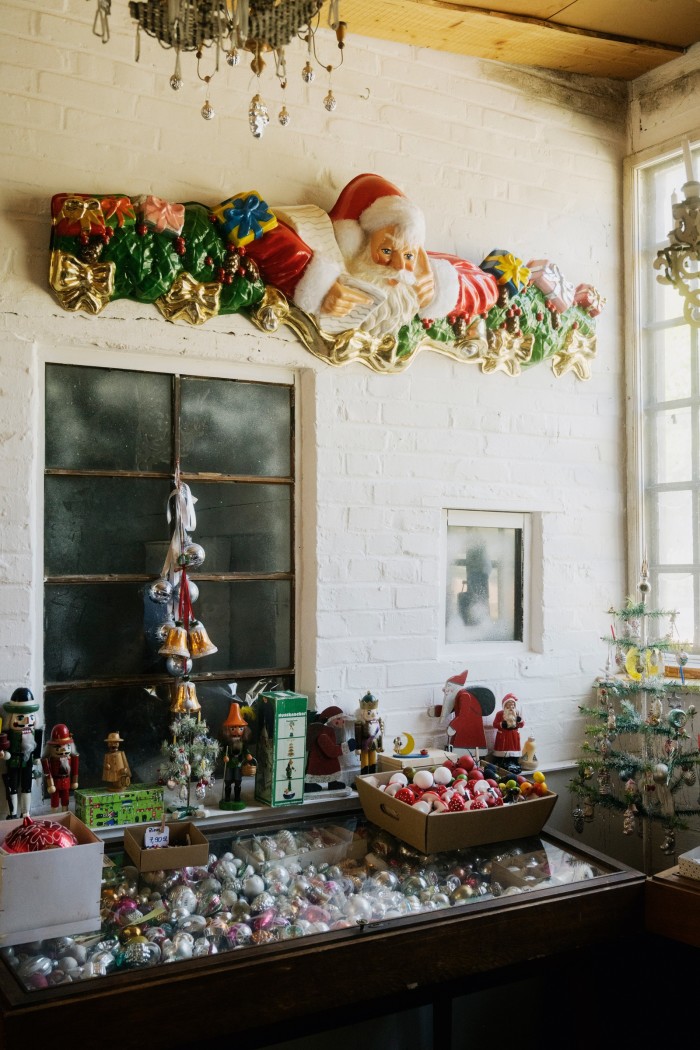
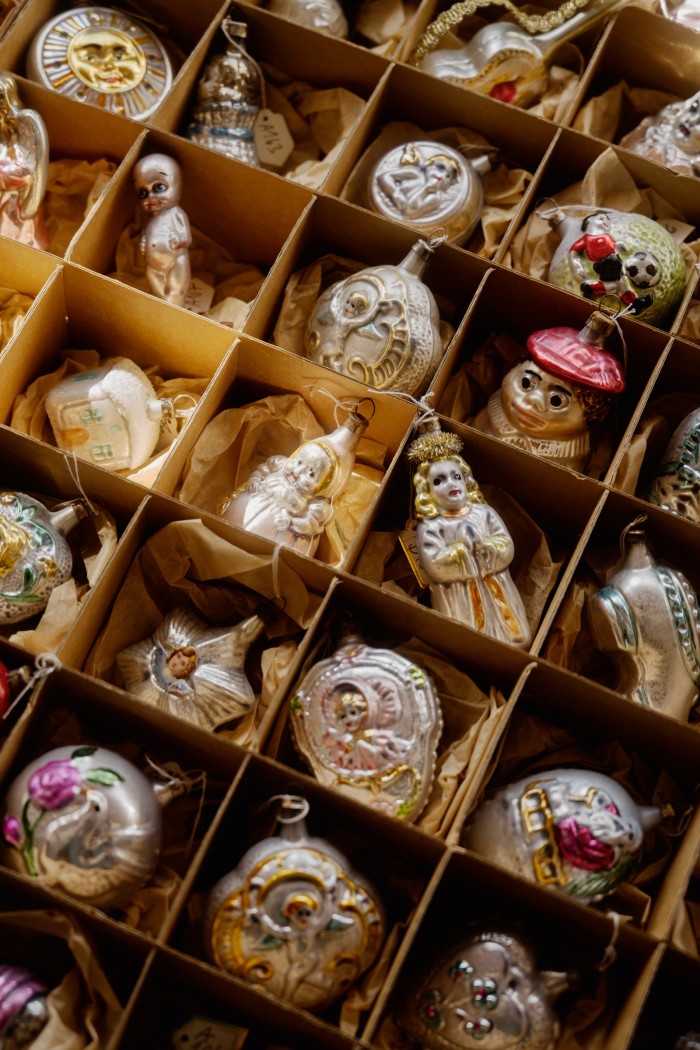
I’d also recommend walking the Glassblowers’ Way, a path from Lauscha to Sonneberg, the town where people sold their ornaments in the old days. It takes about half a day. Once you’re there, Galanterie Sonneberg is an antique shop with museum-quality ornaments. They’re beautiful and rare and full of imagination. What I like about Lauscha is that its vision of Christmas is quite eerie. It’s not America’s Coca-Cola Santa. The characters are more austere and frightening. Take Krampus, a terrifying companion of Santa who punishes badly behaved children.
Lauscha is also known for the foraging of doll’s heads. The area was once heavily involved in doll-making – in its 19th-century heyday, Lauscha made up to 20,000 every day. When there were faulty or chipped dolls, people would chuck them away in the forest up in the mountains. You can still go there and dig for them. I sell ornaments made from these heads, which I paint and give cotton bodies.
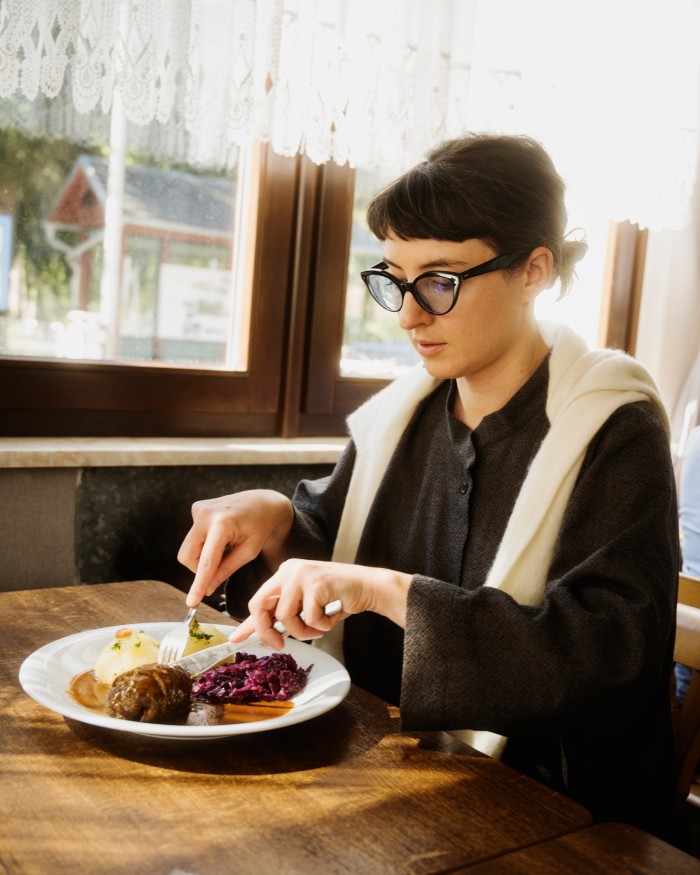
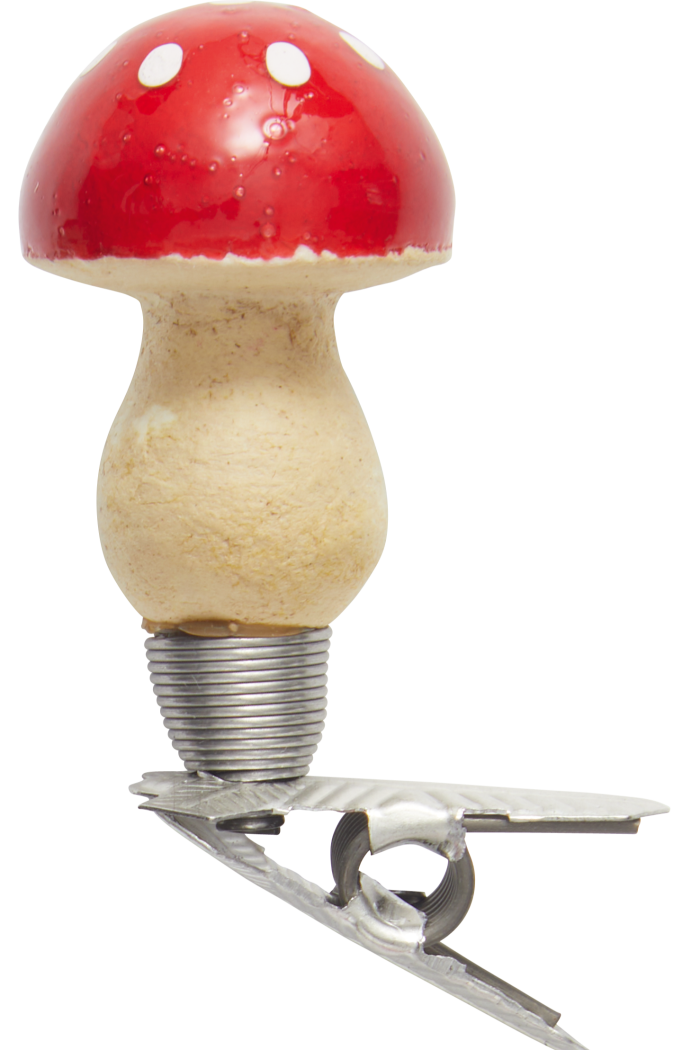
Choosing Keeping mini mushroom Christmas clip, £10
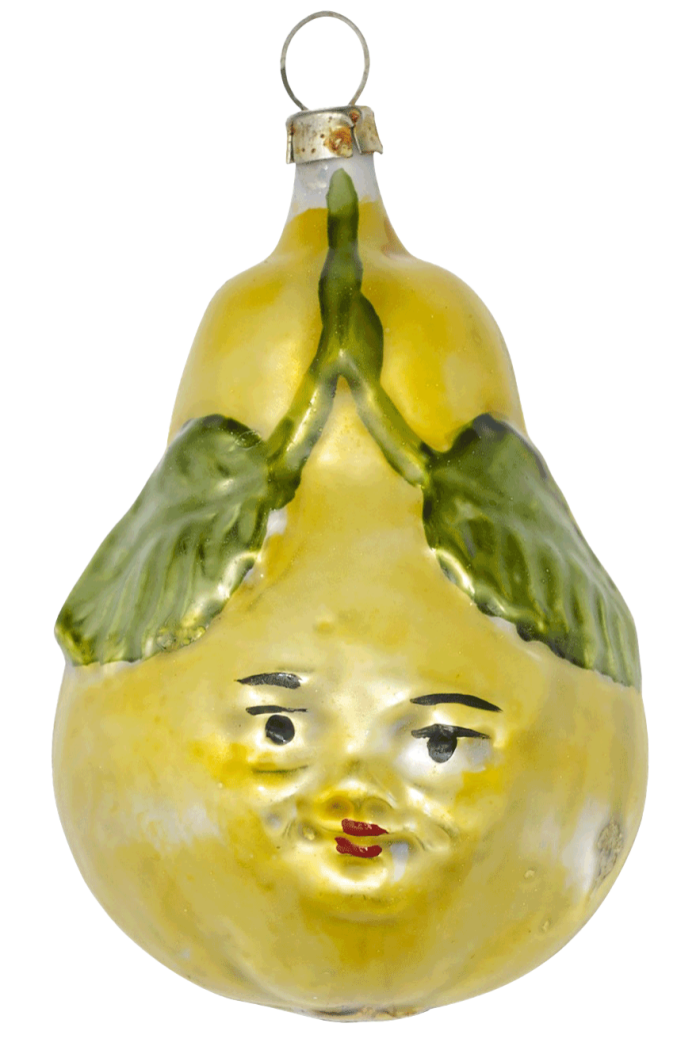
Choosing Keeping Pear Face Christmas ornament, £18
Food here is fit for the cold weather. There are dumplings, klöße, served in two perfect domes with goulash, as well as things like schnitzel. Gasthof zur Schenke is a cute restaurant in a town near Lauscha: it has little curtains and wooden furniture. I could eat the best food, but if it had the wrong chairs I’d find it hard to accept it: I like authenticity. Next to Steffen’s shop there’s also a hole-in-the-wall restaurant, Bahnhofsgaststätte Sitzendorf, that serves klöße: it’s very much a meat-and-potatoes place.
This was a poor region that worked hard for everybody to enjoy Christmas. You can’t really grow fruit up here, and ornament making was really gruelling work. When you go to Lauscha, you realise how much the ornament industry still impacts people who live there. As my relationships with suppliers have deepened, it’s become apparent that the best ornaments have to be hunted down. These products are not made mass-made and they’re not catalogued. If they were, they’d be the wrong ornaments for me.

